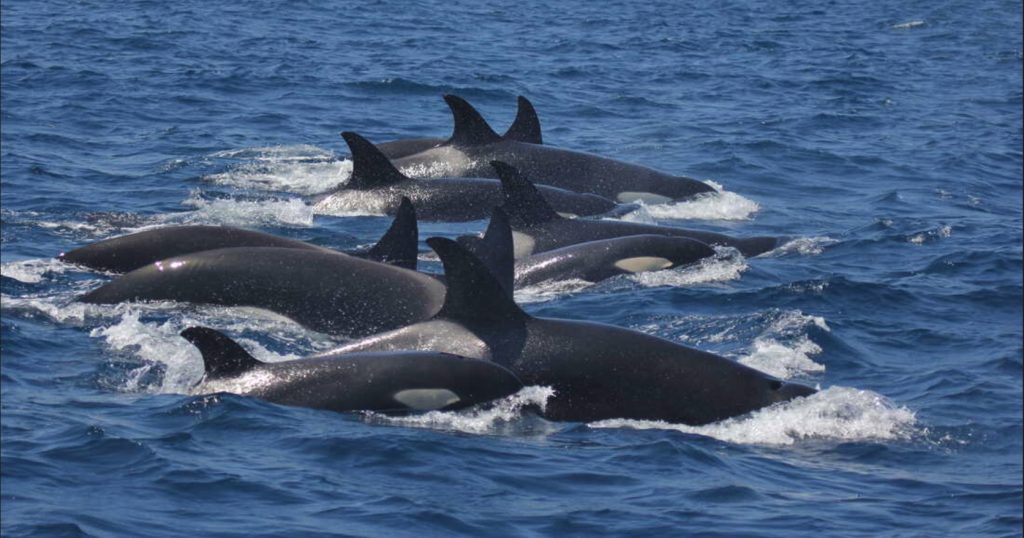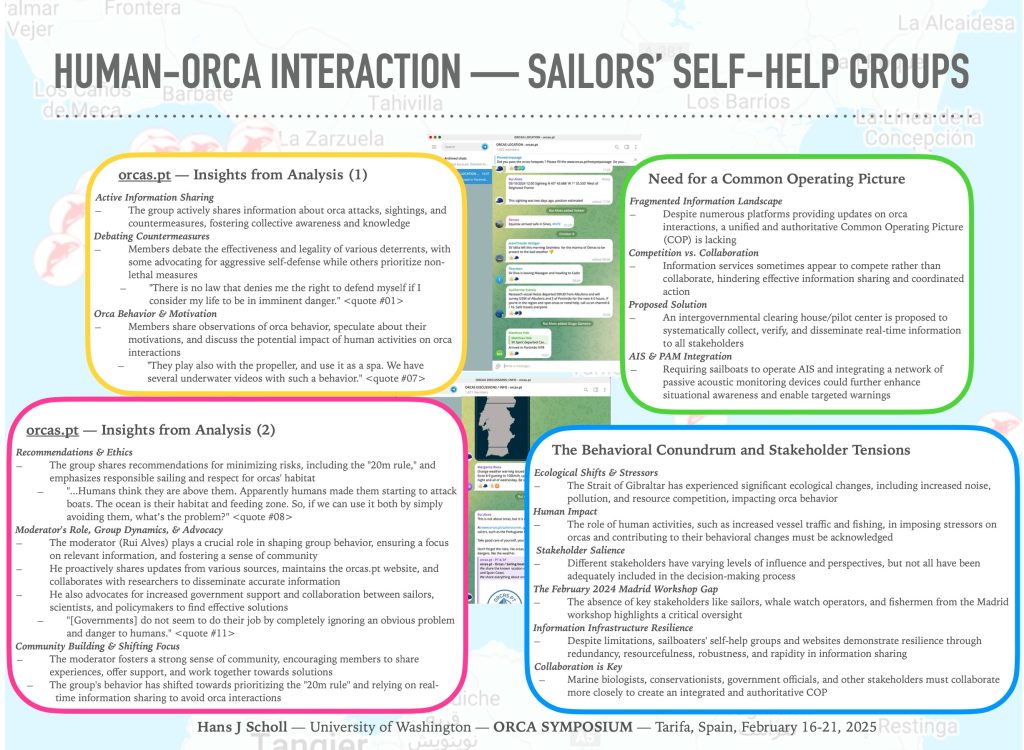For four years, encounters between orcas and recreational sailors have not been very happy ones (for the recreational sailors) in the Strait of Gibraltar and around the Atlantic shores of the Iberian peninsula. So far, no human lives have been lost; however, a total of six sailboats were sunk as a result of orcas attacking and damaging the rudders of sailboats. Over 500 such encounters have been reported since, and some five dozen sailboats have been badly damaged.
In response to these incidents, recreational sailboaters have organized a self-help group (orcas.pt) that provides warnings, location data of sightings and incidents, along with advice and guidelines to sailboat skippers and crews. At the Orca Symposium to be held in mid-February of 2025 in Tarifa, Spain, the poster below will be presented, which calls for an integrated and collaborative approach to creating and maintaining situational awareness and a common operating picture that helps prevent potential human-orca interaction.
To achieve this, the information available from all stakeholders, that is, marine biologists, marine conservationists, fishermen, whale watchers, sailboaters, Coast Guard, Spanish, Portuguese, and Moroccan government agencies, needs to be collected and integrated in near-real time.
So far, it is not clear what initially caused and still motivates the orcas’ behavior; nor is it clear whether or not this pattern of behavior will cede any time soon. The poster below (to be shown at the February symposium) details some aspects of the problem from the recreational sailors’ self-help perspective.


